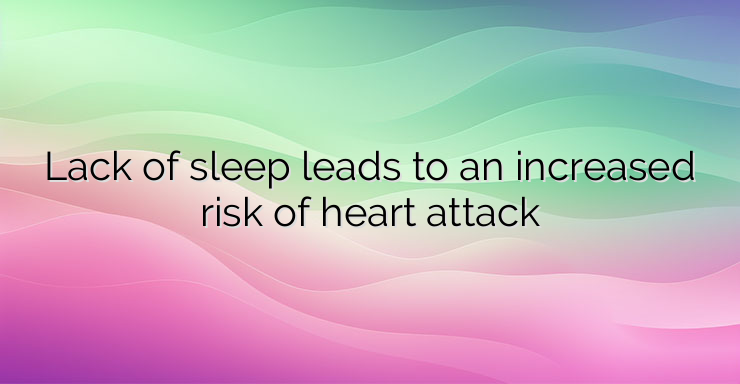Insomnia is a common disorder in the rhythm and quality of sleep, which can be due to both difficulty falling asleep and reduced sleep duration, in which awakening occurs too early and falling asleep again is not possible. This leads to fatigue, reduced concentration and physical endurance during the day. Sleep deprivation is a significant public health problem worldwide and highlights the need to study the health risks associated with impaired sleep quality. Both shorter – less than 7 hours of sleep and long time spent sleeping are associated with an increased risk of developing a myocardial infarction. Cardiometabolic risk factors, unhealthy lifestyle, inflammation and endothelial dysfunction of blood vessels may be related. Sleep has long been considered an indicator of health, as well as the way of eating or practicing regular physical activity. A new study published in Clinical Cardiology, presented at the American College of Cardiology congress, shows that insomnia is associated with up to a 69% higher risk of heart attack. This risk affects women more than men. Patients who suffer from insomnia, regardless of age, have a higher risk of developing a myocardial infarction, and women are more affected. The results of the study showed that those who slept 5 hours or less had an even higher risk. Another factor that contributes to a two-fold increase in cardiovascular risk in these patients is diabetes. Insomnia causes cortisol levels to rise. High values ??of this hormone lead to acceleration of atherosclerotic changes in the vessels. As a result, the blood vessels become more rigid and cholesterol plaques accumulate in them, which, if ruptured, can lead to thrombosis. All these factors increase the risk of a heart attack. The combination of insomnia and difficulty getting up in the morning further increases the risk. Effective and sufficient sleep, on the other hand, has the role of a protective factor against the development of myocardial infarction, regardless of the genetic predisposition to the development of cardiovascular diseases. Stress in everyday life can be a cause of insomnia. It has been found that in 85% of cases of insomnia the cause is stress and it has the greatest impact on the quality of sleep in women. It lowers the restorative effect of sleep and prevents deep sleep. References: https://www.ncbi.nlm.nih.gov/pmc/articles/PMC6785011/


Leave a Reply